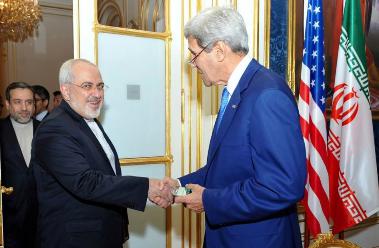On Wednesday of this week, July 16, hundreds of Italians and Iranians gathered in front of the Nelson Mandela Forum in Florence, ahead of the International League volleyball match between Iran and Russia, to protest Iran’s ban on women spectators in sports stadiums.
Protest organizer Taher Jafarizadeh, director of the Neda’s Day organization, told IranWire that he had asked the Florence city council to encourage non-Iranian volleyball players to wear “gender equality” armbands during the game, because Iranian state TV could not censor such images.
Before the start of the International League’s volleyball games, Mahmoud Afshar-Doost, secretary of the Iranian Volleyball Federation, said that Tehran’s Azadi Stadium could not admit women spectators because “the cultural foundations for such an action are not yet ready.” A number of women who wished to attend the games and rejected this pretext tried to enter the stadium when the volleyball games were played in Tehran, but authorities refused to let them pass the stadium gates. In the match between Iran and Italy women security forces treated women who sought entrance roughly and arrested a number of women.
Jafarizadeh said he had spent weeks trying to persuade Italian officials to take a stand against the Iranian stadium ban. He reached out to the Italian Volleyball Federation and sought the help of an Italian official, Ludwig Sonego, who wrote a letter to Italian Minister of Foreign Affairs Federica Mogherin.
“If you know about these unacceptable actions don’t you think that the Italian government should take a firm stand vis-à-vis Iran so that such discriminatory actions would be prevented? Don’t you think that a similar position should be taken regarding the International Volleyball Federation, the Italian National Olympic Committee and the Italian Volleyball Federation?” Sonego wrote.
Jafarizadeh said he consulted with Italian civil and human rights organizations on how to best pressure the Italian government to confront Iran’s policy of gender discrimination. He said officials were unresponsive, and that his organization shifted its attention to the media, publishing a list of demands in Italian newspapers and asking the International Volleyball Federation to fine Iran if it did not refuse to lift the ban on woman spectators.
In a letter to the president of Italy’s National Olympic committee John Malagò, published by Italian newspapers, Jafarizadeh wrote that “the International Volleyball Federation must give the players from all participating teams an armband in which the phrase “Women and men are equal’ is printed.”
Three members of the socialist party Sinistra Ecologia Libertà (SEL) declared that “the ban by the Iranian government on women entering stadiums in support of men’s volleyball team is unacceptable and demands a categorical response by sports and civil organs in Italy and by the city of Florence which is host to volleyball games in which the Iranian National Team competes.”
Members of this party were among human rights activists who had gathered in front of the Nelson Mandela Forum during Iran’s game Russia, carrying placards with the words “Woman=Man”.
Hold Them Accountable
The Iranian women denied entrance to Azadi Stadium have written a letter to the president of International Volleyball Federation complaining about the ban, imposed two years ago, and describing the violent confrontation of security forces and the arrests.
The letter asks the International Volleyball Federation to hold the Iranian Volleyball Federation accountable for this discriminatory treatment by imposing a fine on the organization. It also requests that in international games part of the stadiums remain empty as a symbol for the absent Iranian women and that the players show their support by wearing ‘gender equality’ armbands.
Salome, one of the women denied entry into Azadi stadium, told IranWire that “the ban on women was a hasty decision from the top” in reaction to Ahmadinejad’s order to allow women into stadiums. “The authorities thought that if they retreat one step they have to retreat forever. The day we went to the stadium we knew that it was a political issue because the system treats everything as political, even wearing jeans. We knew that it might cost us but we went there because it is our right.
Anahita, another woman who authorities prevented from watching the match in Tehran, told IranWire she is conflicted about how the international community should deal with the Iranian team. “As an Iranian I don’t want to deprive our national team from playing in international games,” she said. “They are very suspicious of women rights activists and all we need is for the National Volleyball Team to be excluded.”
She said that she and other women sought to challenge the ban within Iran, but eventually resorted to writing to the International Volleyball Federation, whose bylaws oblige Iran to provide the appropriate facilities for all spectators regardless of sex. Iran, she says, has managed to evade that provision by providing space for non-Iranian women.
Iran lost the game to Russia 2-3 as Iranian state television managed to censor images of women spectators in ‘immodest’ dress by repeating scenes and slowing down the broadcast. But international TV networks showed footage of spectators holding placards in support of gender equality cheering on the Iranian team.
visit the accountability section
In this section of Iran Wire, you can contact the officials and launch your campaign for various problems



























comments